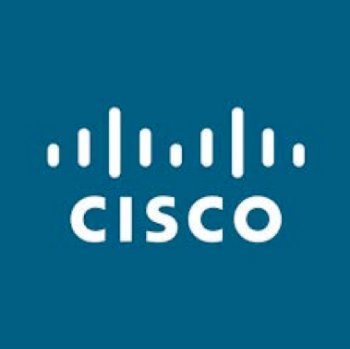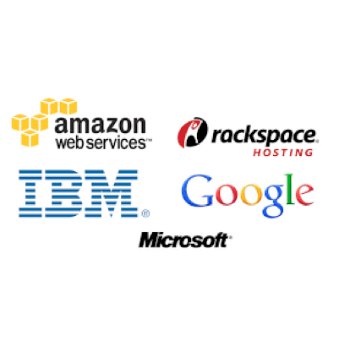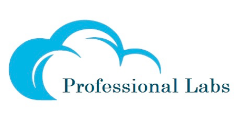Professional Labs is a leader in IT Training with Student trained globally. Professional Labs, the undisputed leader in high – end training, has been in the forefront to introduce training on technology as it emerges. Ever since its inceptions in 1997 Professional Labs, has focused on quality and have endeavored to be the best. We have certified trainers with years of experience in IT industry
Objectives
Professional Labs is committed to addressing each and every customer’s opportunity with a partnering approach. Based upon the customers’ requirements we ensure that our training will provide growth in networking for the future.



Microsoft Azure:
Microsoft Azure: 70-533 Implementing Microsoft Azure Infrastructure Solutions
- Microsoft Azure: 70-535: Architecting Microsoft Azure Solutions
- Azure Stack 20537A: Configuring and Operating a Hybrid Cloud with Microsoft Azure Stack
- Microsoft Certified Solutions Expert (MCSE) Windows Server 2016
- Public Key Infrastructure (PKI)


Cisco Certified Network Associate CCNA Course
- CCNP – Cisco Certified Network Professional
- CCIE- Cisco Certified Internetwork Expert
Other Technologies
- Citrix XenApp and XenDesktop
- AWS SOLUTIONS ARCHITECT TRAINING
- Google Cloud Solution Architect


Course 20535: Architecting Microsoft Azure Solutions
- Course Content:
- Module 1: Application Architecture Patterns in Azure
- Module 2: Deploying Resources with Azure Resource Manager
- Module 3: Building Azure IaaS-Based Server Applications
- Module 4: Backing Azure Solutions with Azure Storage
- Module 5: Networking Azure Application Components
- Module 6: Managing Security and Identity for Azure Solutions
- Module 7: Monitoring and Automating Azure Solutions
Azure Stack
Course 20537A: Configuring and Operating a Hybrid Cloud with Microsoft Azure Stack
- Course Content:
- Module 1: Overview of Azure Stack
- Module 2: Foundational Components of Microsoft Azure Stack
- Module 3: Deploying Microsoft Azure Stack
- Module 4: Offering Microsoft Azure Stack Resources
- Module 5: Microsoft Azure Stack and DevOps
- Module 6: Infrastructure as a Service and Microsoft Azure Stack
- Module 7: Platform as a Service and Microsoft Azure Stack
- Module 8: Monitoring in Microsoft Azure Stack
- Module 9: License Microsoft Azure Stack and Billing Tenants

Microsoft Certified Solutions Expert (MCSE) Windows Server 2016
- Introducing Windows Server 2016
- Preparing and installing Server Core
- Overview of Hyper-V
- Installing Hyper-V
- Configuring storage on Hyper-V host servers
- Configuring networking on Hyper-V host servers
- Configuring Hyper-V virtual machines
- Managing virtual machines
- Lab: Installing and configuring Hyper-V
- Overview of AD DS
- Overview of AD DS domain controllers
- Deploying a domain controller
- Lab: Deploying and administering AD DS
- Overview of advanced AD DS deployments
- Deploying a distributed AD DS environment
- Configuring AD DS trusts
- Lab: Domain and trust management in AD DS
- Managing user accounts
- Managing groups in AD DS
- Managing computer objects in AD DS
- Using Windows PowerShell for AD DS administration
- Implementing and managing OUs
- Overview of AD DS replication
- Configuring AD DS sites
- Configuring and monitoring AD DS replication
- Lab: Implementing AD DS sites and replication
- Introducing Group Policy
- Implementing and administering GPOs
- Group Policy scope and Group Policy processing
- Lab A: Implementing a Group Policy infrastructure
- Troubleshooting the application of GPOs
- Lab B: Troubleshooting Group Policy infrastructure
- Implementing administrative templates
- Configuring Folder Redirection, software installation, and scripts
- Configuring Group Policy preferences
- Managing user settings with Group Policy
- Securing domain controllers
- Implementing account security
- Implementing audit authentication
- Configuring managed service accounts
- Planning and implementing an IPv4 network
- Planning IPv4 addressing
- Lab A: Planning an IPv4 network
- Configuring an IPv4 host
- Managing and troubleshooting IPv4 network connectivity
- Lab B: Implementing and troubleshooting an IPv4 network
- Implementing DHCP
- Overview of the DHCP server role
- Deploying DHCP
- Managing and troubleshooting DHCP
- Lab: Implementing DHCP
- Implementing DNS
- Implementing DNS servers
- Configuring zones in DNS
- Configuring name resolution between DNS zones
- Lab A: Planning and implementing name resolution by using DNS
- Configuring DNS integration with AD DS
- Lab B: Integrating DNS with AD DS
- Configuring advanced DNS settings
- Lab C: Configuring advanced DNS settings
- Implementing VPNs, LAN Routing and NPS
- Planning VPNs
- Implementing VPNs
- Lab: Implementing VPN
Implementing Active Directory Federation Services (ADFS)
- Course Content:
- Module 1: Introducing Claims-Based Identity
- Module 2: AD FS Prerequisites
- Module 3: Public Key Infrastructure (PKI)
- Module 4: AD FS 2.0 Components
- Module 5: Claims-Based Authentication in a Single Organization
- Module 6: Claims-Based Authentication in a Business-to-Business Federation
- Module 7: Advanced AD FS Deployment Scenarios
- Module 8: The AD FS Claims Rule Language.
- Module 9: AD FS Troubleshooting


Public Key Infrastructure (PKI)
- Course Content:
- Module 1: Introduction to PKI
- Module 2: What is a Digital Certificate
- Module 3: PKI Ecosystem
- Module 4: Certificate Authorities (CA)
- Module 5: Certificate Management Systems
- Module 6: Certificate Revocation
- Module 7: PKI Best Practices
- Module 8: Launching PKI in Your Company
AWS SOLUTIONS ARCHITECT TRAINING
- Course Content:
- Module 1: Introduction to Cloud Computing
- Module 2: Introduction to Amazon Webservices – Services Overview and AWS Infrastructure overview
- Module 3: Preparatory Topics – Virtualization, Networking and Storage concepts
- Module 4: AWS Management Console and AWS Account
- Module 5: Amazon EC2 – Instance types, families, generations
- Module 6: Amazon EBS – Magnetic, SSD, Provisioned IOPS
- Module 7: Amazon VPC – Subnets, ACLs, Routing rules, Security Groups
- Module 8: Hands-on activity: Creating a VPC, Creating instances (VMs) on EC2 and configuring all necessary services, attaching EBS volumes, Elastic IPs, etc.
- Module 9: AWS IAM overview
- Module 10: Configuring IAM users, groups and policies – Secret Keys and API Access
- Module 11: Brief introduction to Infrastructure as Code methodology
- Module 12: AWS Services Overview – Cloudformation, OpsWorks and ElasticBeanstalk
- Module 13: Fundamentals of Cloudformation templates
- Module 14: Hands-on activity – creating and working with cloudformation templates and deploying a Stack using them.
- Module 15: High Availability Design, Backup and DR
- Module 16: Cost Estimation using Simple Monthly Calculator

Citrix XenApp and XenDesktop
- Course Content:
- Module 1: Understanding the XenApp and XenDesktop Architecture
- Module 2: Hypervisor Considerations
- Module 3: Infrastructure Considerations and Setup
- Module 4: Setting Up Citrix Components
- Module 5: Setting Up XenApp and XenDesktop Resources
- Module 6: Managing Policies and Profiles
- Module 7: Managing Printing
- Module 8: Managing and Monitoring Sessions, and Sites with Director

